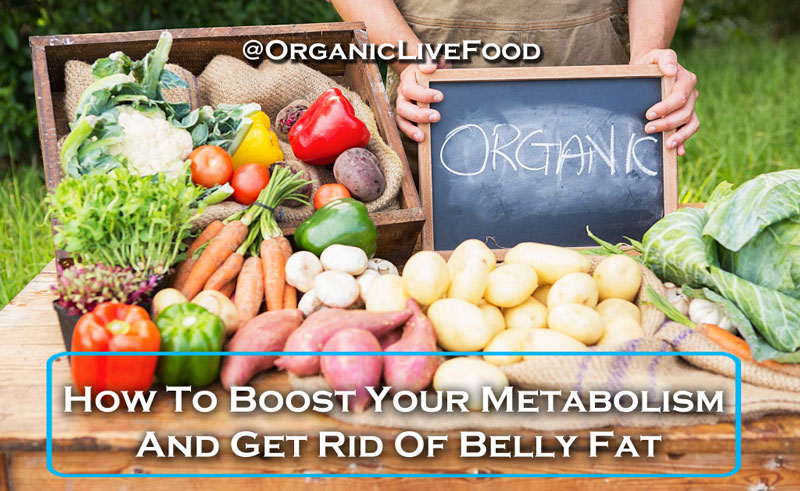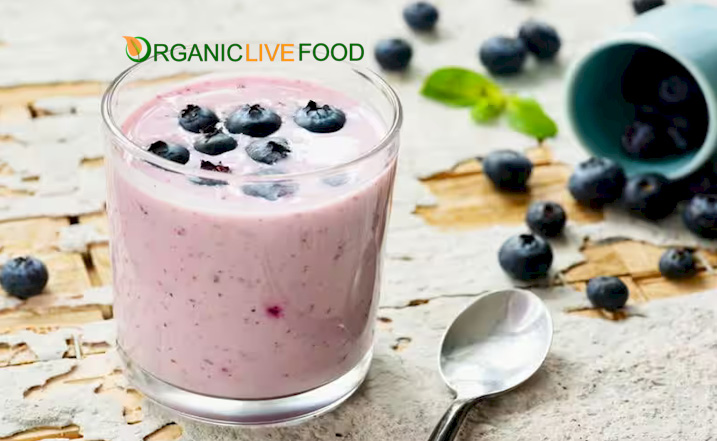
Did you know that your gender, age, and health condition plays an important role in your metabolic rate? As we age, our metabolism slows down making it harder to lose weight or maintain a healthy weight.
Keep in mind that on average women gain about 1.5 pounds a year making them gain extra 40 pounds by the time they are 50. The 1.5 pounds weight gain is when you don’t consider other life style factors such as poor eating habits, lack of physical activity, or changes in hormones or stress levels.
“There is a lot of misinformation out there when it comes to boosting up your metabolism and burning belly fat effectively” says Dr Holly Lofton, MD, an assistant professor of medicine and director of the weight management program at NYU Langone Medical Center.
By eating the right type of foods and doing the right set of exercises (depending on your body type), you can maintain a healthy weight and live a longer and healthier life while feeling more energetic.
1. Get enough sleep
According to a recent report by Centers for Disease Control and Prevention, more than one third of Americans don’t get enough sleep. Researchers say that more than 34.8% of adults in US are getting less than seven hours of sleep.
Ideally, at least, a minimum seven hours of sleep is required in order to lower the risk of obesity, heart disease, diabetes, hypertension, stress and anxiety, and mental disorders.
Another study by the researches at Wake Forest University shows that people who have on average 5 hours of sleep (or less) are more likely to gain weight, (especially in their belly) compared to those who sleep minimum of 6 to 8 hours.
Researchers suggest that your body will increase the production of stress hormones that makes you feel hungry if you are not getting enough sleep.
2. Cut down sugary drinks, sodas, and foods high in carbohydrates
Foods or beverages high in sugar and carbs do slow down your metabolism and can even bring it to a halt. The increase in blood sugar levels after drinking soda is another reason why you should eliminate drinking all sugary drinks and sodas.
Keep in mind foods high in carbs such as pasta, pizza or white rice and bread slow down your metabolism and suck more energy out of your body while giving you little or no nutrients.

3. Eat real and nutritious organic foods and avoid non organic meat or dairy products that have high levels of growth hormones and antibiotics
According to Canadian researchers, toxins and pesticides slow down your metabolism by interfering with the body’s metabolic rate. “Organochlorines are fat-soluble chemical compounds resistant to degradation, so they are stored in the adipose tissue of practically every organism on the planet, including humans.
Accumulation of these compounds in the body seems to be related to fat mass, obese individuals having a higher plasma organochlorine concentration than lean subjects” researchers say.
On a daily average Americans are exposed to more than 13 different pesticides via their food or beverages. Most of these pesticides are endocrine- disruptors linked to obesity and weight gain.
The extensive use of chemicals, plastic pollutants, antibiotics and bovine growth hormones in meat and dairy products have been linked to early puberty, obesity, cancer, and heart disease.
Make sure to buy organic foods and lower your intake of farmed fish, non organic vegetables and fruits, and GMO corn and soy fed livestock.
4. Include lean protein and omega 3 fatty acids in your diet such as wild sockeye salmon
Omega 3 fatty acids found in avocado, seeds and nuts, olive oil, and wild salmon (lowest mercury fish=0.09) can fight the abdominal fat in the body.
Keep in mind that nuts and seeds have good fat but they are also high in calorie, saturated fat and cholesterol and too much of them can lead to weight gain.
Your body needs omega 3 fatty acids in order to get rid of belly or abdominal fat. Wild sockeye salmon is a great source of lean protein, vitamin B12 and omega 3 fatty acids.
Farmed raised fish/salmon have 10 times more pollution and PCB’s and 30 times more sea lice compared to wild salmon. Farmed raised salmon are also fed off of pellets made from feces of turkey or chicken.
5. Eat more foods high in fiber
 Researchers suggest that foods high in fiber can help with weight loss or maintaining a healthy weight. In fact, studies suggest that adding fiber to your diet can help to boost up your metabolism by 30%.
Researchers suggest that foods high in fiber can help with weight loss or maintaining a healthy weight. In fact, studies suggest that adding fiber to your diet can help to boost up your metabolism by 30%.
Fiber rich foods such as dark leafy vegetables, or fruits and nuts have thousands of micronutrients that can balance the metabolism of your body by improving your digestion.
The fiber found in fruits and vegetables also cleans the gastrointestinal wall by removing starchy and oily food debris from the lining of the intestinal wall.
By cleansing the debris from your colon, your body will be able to absorb a lot more nutrients from the foods you eat. Foods rich in fiber could also increase the beneficial bacteria and lower the risk of harmful bacteria and viruses in the intestinal tract.
6. Eat more foods high in magnesium
Magnesium plays an important role in regulating blood sugar levels and function of different organs in the body.
Foods rich in magnesium are essential in maintaining a healthy weight since they help to regulate the glucose and insulin level by controlling the way your body synthesizes proteins, carbohydrates, and fat.
During menstrual cycle, magnesium rich foods or supplements can help to lower bloating and weight gain.
More than 80% of Americans have magnesium deficiency and high intake of calcium compared to magnesium happens to be the culprit in increasing the risk of many chronic diseases such as heart disease or osteoporosis.
In the diet of most Americans the ratio of calcium to magnesium is more like 6 to 1, but in order to avoid diseases the researchers suggest that that ratio should be like 1 to 1.
The body craves for real foods when it essentially doesn’t receive proper nutrients like magnesium or silicon. When you are low in magnesium you will crave any kind of food and feel more exhausted.
Raw cacao beans, dark leafy vegetables, nuts and beans are great source of magnesium.
7. Get enough vitamin D
Lack of vitamin D can lead to calcium deficiency, bone decay and many other chronic health issues. Keep in mind that vitamin D is essential in boosting up your metabolism.
According to researchers, only 4% of Americans over the age of 50 get enough vitamin D in their diet. Keep in mind that beside safe daily exposure to sun, wild salmon, tuna, shrimp and eggs are good source of vitamin D.
Researchers suggest that more than 40% of people in North America have vitamin D deficiency and people who are obese or overweight are more likely to be vitamin D deficient.
"The present data indicate that in obese and overweight people with vitamin D deficiency, vitamin D supplementation aids weight loss and enhances the beneficial effects of a reduced-calorie diet," say researchers from Luisella Vigna of the University of Milan.

8. Do the right set of exercise for your body type
Not everyone has the same metabolic rate and depending on different factors (like your body type or age) the optimum workout for everyone could be different.
However, generally speaking moderate- to high-intensity cardio can help to boost up your body’s fat burning ability. Strength training can also help your body to build right sets of muscles and help you burn fat.
“Aerobic exercise is key to burning those calories stored as fat. Work up a good sweat while you are at the gym, and add in some extra resistance work to burn the fat, especially in the belly area” says said Dr. Holly F. Lofton, director of the Medical Weight Management.
Keep in mind that sitting for extended number of hours can significantly slow down your metabolism. Even standing burns more calories than sitting, so try to stand or walk every hour.
If you don’t have access to gym, regular brisk walking or swimming are great ways to burn fat and boost up your metabolism. According to researchers, just walking 30 min a day, most days of the week could help to boost up your metabolism by burning extra calories and preventing muscle loss.
9. Drink plenty of water and keep hydrated
Drinking a cool glass of water can help to boost up your metabolism by 24% in just 90 min, researchers say.
When you wake up, your body is dehydrated and drinking 16oz of water in the mornings can help to hydrate your body and boost your metabolism. “Your body uses water to break down fat cells, so it's important to stay hydrated," says Dr. Holly Lofton.
Drinking water can also help to cleanse your body from toxins and free radicals. “Your kidneys do an amazing job of cleansing and ridding your body of toxins as long as your intake of fluids is adequate”, says Kenneth Ellner, an Atlanta-based dermatologist.
Studies suggest that drinking one glass of water before every meal can boost up metabolism and help with weight loss. According to researchers, “people who drink a glass of water before every meal lost 4.5 pounds over a three-month period, because it fills up the stomach with a substance that has zero calories, and people feel full as a result”.

10. Add right supplements, herbs and spices into your diet
When your body is deficient in essential nutrients it craves for any kind of foods, in particular sugary foods.
Unfortunately, over the last 50 years, our soil has become depleted of many essential nutrients and wrong agricultural practices and extensive use of pesticides and chemicals have ended up depleting our foods and soil from nutrients.
As we get older we also become deficient in certain minerals and vitamins such as magnesium, vitamin B12 and vitamin D. Taking right nutritional supplements can help to boost up your metabolism and improve your overall health and vitality.
In additional to supplements, herbs and spices such as cayenne, ginseng, cinnamon, cumin, black pepper, ginger, turmeric, and saffron can your boost metabolism and are known for their obesity fighting properties.
